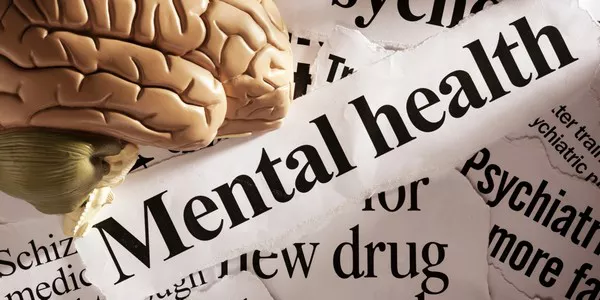Mental illness, often referred to as a disease of the mind, is a complex and diverse group of medical conditions that affect an individual’s thoughts, emotions, mood, and behavior. These conditions can significantly impact a person’s ability to function in daily life and may require specialized care and treatment. In this comprehensive article, we delve into the definition of mental illness, the various types of mental disorders, common symptoms, potential causes, and the importance of seeking professional help for effective management.
Defining Mental Illness
Mental illness encompasses a wide range of conditions that affect mental and emotional well-being, leading to alterations in cognitive processes, emotional regulation, and behavioral patterns. These conditions can be caused by a combination of genetic, biological, psychological, and environmental factors.
Unlike physical illnesses that affect specific organs or body systems, mental illness primarily targets the brain’s neural pathways, neurotransmitters, and psychological processes. It is essential to recognize that mental illness is not a result of personal weakness or lack of willpower; rather, it is a legitimate medical condition that requires understanding, compassion, and appropriate treatment.
Types of Mental Illness
Mental illness comprises a diverse spectrum of disorders, each presenting with unique symptoms and challenges. Some of the most common types of mental illnesses include:
1. Major Depressive Disorder (MDD): MDD is characterized by persistent feelings of sadness, loss of interest or pleasure in activities, changes in appetite or sleep patterns, and feelings of worthlessness or guilt.
2. Generalized Anxiety Disorder (GAD): GAD involves excessive worry and anxiety about everyday situations, often accompanied by physical symptoms like restlessness, muscle tension, and irritability.
3. Bipolar Disorder: Bipolar disorder is marked by extreme shifts in mood, including periods of depression and manic episodes characterized by elevated mood, impulsivity, and high energy levels.
4. Schizophrenia: Schizophrenia is a severe and chronic disorder that affects a person’s perception of reality, leading to hallucinations, delusions, disorganized thinking, and reduced emotional expression.
5. Obsessive-Compulsive Disorder (OCD): OCD involves persistent and intrusive thoughts (obsessions) that lead to repetitive behaviors (compulsions) as a means to alleviate anxiety.
6. Post-Traumatic Stress Disorder (PTSD): PTSD develops after exposure to a traumatic event and is characterized by flashbacks, nightmares, hypervigilance, and avoidance of trauma-related stimuli.
Common Symptoms of Mental Illness
The symptoms of mental illness can vary widely depending on the specific disorder and its severity. Some common symptoms include:
1. Persistent Sadness or Mood Swings: Feeling sad or irritable for an extended period, or experiencing extreme mood shifts.
2. Changes in Sleep Patterns: Difficulty falling asleep, staying asleep, or oversleeping.
3. Social Withdrawal: Avoiding social interactions and isolating oneself from others.
4. Difficulty Concentrating: Struggling to focus on tasks or make decisions.
5. Physical Complaints: Unexplained physical symptoms such as headaches or stomachaches.
6. Appetite Changes: Significant weight loss or gain due to changes in eating habits.
7. Substance Abuse: Turning to drugs or alcohol as a coping mechanism.
Potential Causes of Mental Illness
The development of mental illness is influenced by a combination of genetic, biological, environmental, and psychological factors. Some common causes include:
1. Genetic Predisposition: Having a family history of mental illness can increase the risk of developing similar conditions.
2. Brain Chemistry: Imbalances in neurotransmitters, the brain’s chemical messengers, can contribute to mental disorders.
3. Environmental Factors: Traumatic experiences, childhood abuse, neglect, or exposure to chronic stress can impact mental health.
4. Neurodevelopmental Factors: Disruptions in brain development during pregnancy or early childhood can contribute to the onset of mental illness.
5. Substance Use: Chronic drug or alcohol use can lead to changes in brain chemistry and increase the risk of mental disorders.
The Importance of Seeking Professional Help
Early recognition and intervention are crucial in managing mental illness effectively. Seeking professional help from qualified mental health practitioners is essential for several reasons:
1. Accurate Diagnosis: Mental health professionals can conduct comprehensive assessments to provide an accurate diagnosis and tailor treatment accordingly.
2. Individualized Treatment Plans: Each person’s experience with mental illness is unique, requiring personalized treatment approaches that address their specific needs.
3. Evidence-Based Therapies: Mental health professionals are trained in evidence-based therapies that have been proven effective in managing various mental disorders.
4. Medication Management: For certain conditions, medication may be prescribed to alleviate symptoms and improve overall well-being.
5. Support and Validation: Working with a mental health professional offers emotional support and validation, creating a safe space to discuss personal challenges.
Treatment Approaches
Effective treatment of mental illness often involves a combination of therapeutic approaches. Some common treatment modalities include:
1. Psychotherapy: Also known as talk therapy, psychotherapy involves exploring emotions, thoughts, and behaviors to promote understanding and coping skills.
2. Medication: Psychiatric medications, such as antidepressants or antianxiety drugs, may be prescribed to manage specific symptoms.
3. Cognitive-Behavioral Therapy (CBT): CBT helps individuals identify and modify negative thought patterns and behaviors that contribute to their mental health challenges.
4. Group Therapy: Group therapy provides a supportive environment for individuals with similar experiences to share and learn from one another.
5. Family Therapy: Involving family members in therapy can improve communication and address interpersonal issues.
Conclusion
Mental illness is a diverse and complex group of medical conditions that affect thoughts, emotions, mood, and behavior. These conditions can significantly impact an individual’s ability to function in daily life, but with timely recognition and appropriate treatment, individuals can lead fulfilling and meaningful lives. Seeking professional help from qualified mental health practitioners is essential for accurate diagnosis, individualized treatment plans, and evidence-based therapies that can effectively manage mental illness. With compassion, understanding, and accessible mental health care, we can support those affected by mental illness on their journey to recovery and well-being.

